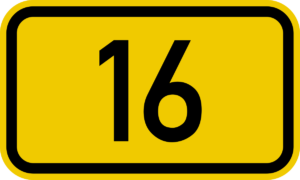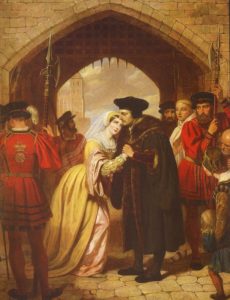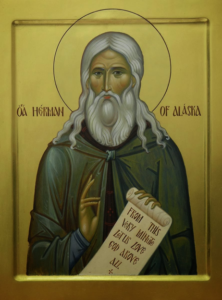Welcome to the Saintly Sixteen! With your help, we have successfully cut our 32 saints in half. Numerically speaking, that is, not in a martyred kind of way. For this round, rather than the basic biographical information we enter the realm of Quirks and Quotes. Our brilliant Celebrity Bloggers will provide unusual information or legends surrounding their saints along with quotes either by or about their saints.
kind of way. For this round, rather than the basic biographical information we enter the realm of Quirks and Quotes. Our brilliant Celebrity Bloggers will provide unusual information or legends surrounding their saints along with quotes either by or about their saints.
Yesterday Clare of Assisi snagged the final spot in the Saintly Sixteen by defeating Isidore of Seville 59% to 41%. Clare will face Elizabeth Fry in the next round.
Don’t forget, you can always go to the Bracket Tab, deftly managed by Bracket Czar Adam Thomas, to easily find previous battles if you need to refresh your basic knowledge on these saints. This is yet another free courtesy extended to you, the Lent Madness Global Public.
We kick things off with a matchup between Thomas More and Herman of Alaska. To get to this point, Thomas defeated James the Less in the very first battle of Lent Madness 2020, while Herman surprised Elizabeth of Hungary.
Thomas More
 Sir Thomas More is as multi-faceted an individual as any in history: at once stern and witty; ahead of his time and behind his time; prayerful and pious, and yet also politically calculating and cunning. Opinions on More sway as easily as the breeze, depending highly on the counsel one chooses to take on More’s life and character, and there is a good case is to be made that all those opinions are correct. Yet More’s conviction to the church, and his faith in God remain beyond question.
Sir Thomas More is as multi-faceted an individual as any in history: at once stern and witty; ahead of his time and behind his time; prayerful and pious, and yet also politically calculating and cunning. Opinions on More sway as easily as the breeze, depending highly on the counsel one chooses to take on More’s life and character, and there is a good case is to be made that all those opinions are correct. Yet More’s conviction to the church, and his faith in God remain beyond question.
Among More’s masterworks was Utopia, writing some consider a political essay, and others consider political satire. In Utopia, More imagines the ideal community, including, fittingly, a good way to run meetings—a lesson many a church Vestry could stand to heed:
“One rule observed in their council is, never to debate a thing on the same day in which it is first proposed; for that is always referred to the next meeting, that so men may not rashly and in the heat of discourse engage themselves too soon… to prevent this, they take care that they may rather be deliberate than sudden in their motions.”
Given so many church meetings stress over finances, it is also notable that More’s Utopia also imagined a world where people, rather than wealth, stand at the center of human society:
“They wonder much to hear that gold, which in itself is so useless a thing, should be everywhere so much esteemed, that even men for whom it was made, and by whom it has its value, should yet be thought of less value than it is.”
Perhaps aware of his polarizing character, after he was imprisoned for refusing to disavow the Roman Catholic Church after Henry VIII’s assertion of control over the Church in England, More wrote to his daughter Margaret Roper:
“I do nobody harm, I say none harm, I think none harm, but wish everybody good. And if this be not enough to keep a man alive, in good faith, I long not to live.”
And even as he was led to his death, More proclaimed that
“I die the king's faithful servant, and God’s first.”
More’s legacy is complex, including to Episcopalians and Anglicans. Perhaps foreseeing his own end, he wrote of Richard III in 1543,
“For men use, if they have an evil turn, to write it in marble: and whoso doth us a good turn we write it in dust.”
Whether More is for dust or marble remains a debatable question, even to this day. One cannot doubt, however, More’s depth of sincerity and conviction.
Herman of Alaska
 During his 85 years, Herman of Alaska dedicated his life to the Gospel. He maintained, “A true Christian is made by faith and love toward Christ. Our sins do not in the least hinder our Christianity, according to the word of the Savior Himself.”
During his 85 years, Herman of Alaska dedicated his life to the Gospel. He maintained, “A true Christian is made by faith and love toward Christ. Our sins do not in the least hinder our Christianity, according to the word of the Savior Himself.”
In 1794 when Herman embarked on a voyage to Russian-owned Alaska, he was filled with missionary zeal. “From this day forth from this very hour and this very minute, let us love God above all and seek to accomplish His Holy Will,” Herman reflected.
What he discovered in Alaska were flourishing trading posts, many fellow Russians, and the mistreatment of the Aleuts, the native inhabitants of that area.
His writings reflect how sickened he was of the harsh domination, and of his calling to comfort the populace in their misery. Herman wrote, “Since the welfare of this nation by the Providence of God, it is not known for how long, is dependent on and has been entrusted into the hands of the Russian government which has now been given into your own power, therefore I, the most humble servant of these people, and their nurse stand before you in their behalf, write this petition with tears of blood. Be our Father and our Protector. Certainly we do not know how to be eloquent, so with an inarticulate infant’s tongue we say: Wipe away the tears of the defenseless orphans, cool the hearts melting away in the fire of sorrow. Help us to know what consolation means.”
Herman’s life in the vast wilderness was tough; nonetheless his ministry to the Aleuts never wavered. While tending to the sick through an epidemic, he related: “I saw mothers over whose bodies cold in death crawled a hungry child, crying and searching in vain for its food...My heart was bursting with compassion! It seemed that if anyone could paint with a worthy brush the full horror of this tragic scene, that he would have successfully aroused fear of death in the most embittered heart.”
Herman never returned to his homeland and retreated to the life of a hermit in his later years. He always knew he was not alone. "God is here, as God is everywhere," he said.
Even as his life ebbed and he reflected on his relationship with his Maker, Herman remained committed to spreading the Gospel, questioning and challenging others: “I, a sinner, have been trying to love God for more than forty years, and cannot say that I perfectly love Him. If we love someone we always remember him and try to please him; day and night our heart is occupied with that object. Is that how you, gentlemen, love God? Do you often turn to Him, do you always remember Him, do you always pray to Him and fulfill His holy commandments?”
Upon his death on November 15, 1836, Bishop Peter Kashevarov reported, “In general all the local inhabitants have a reverent respect for him as a holy ascetic, and are entirely convinced of his having pleased God.”
-- Neva Rae Fox
[poll id="286"]
107 comments on “Thomas More vs. Herman of Alaska”
“ God is here, as God is everywhere.” Herman, words we need to remember today. You have my vote.
Anyone else miss having the Collects at the end of the write ups?
Yes! I miss them!
Open a second tab in your browser and go to the first round posts, so you can read the collect for each of the nominees who made it to the second round.
Today's vote is the most difficult for me so far. In the end I am convinced by Herman's writing near the end of his life, of his struggle to love God more fully. At 82, having loved God imperfectly all my life, I still struggle. Yet I need the help of all the saints, especially through their writings, to make my way ever closer to true love of my Savior.
Ah ... Looks like the Saintly 16 is going to be a lot tougher. I have served on vestries containing surly and unwavering members. More's advice would have been timely. Early on, he had my vote. Then I read about Herman the Hermit (not the "Can You Feel My Heartbeat " guy) again. He was tuned in to an internal desire for the love of God at a very local level, caring for the most needy within his reach "My heart is bursting with compassion." Now I must vote ..
Today’s matchup is easy peasy for me. Vote Herman of Alaska!
I voted for each in the first round, which made it even more (no pun intended) difficult to choose this time. And once the saints for whom I voted kept "losing", I voted for the underdogs.
Well, Herman is ahead as I write this but I'm going to vote for him anyway!
Excellent comments, everyone!
I promised my husband to vote for Herman as long as he was available. My spouse is amused by his name. In this contest I actually love how Thomas More is portrayed. He is a very complex man and most deserving of sainthood. We are all complex.
I find Thomas More an intriguing historical figure at a time when so much was changing in the Christian world, but I vote for Herman today in this time of modern plague. And anyone who survives the Alaskan winter is most worthy of support!
I have waited to vote for Herman since he beat the 1st Elizabeth.
He is certainly the saint for our times since can't gather together we need to remember God is everywhere and we need to pray now more ever.
A saint for a pandemic.
I love Herman’s humble charm and devout faith in God. I am so tickled that he’s doing so well with the discerning Lent Madness crowd, too!
Being the good English professor I reluctantly side with Thomas More. His influence on Western history and literature is contemporary. Dramas and poems memorialize him. Herman bless his heart, humbly advocated for the First Nations people, but they are still, some would say, needy as they were when Herman was with them. On an emotional level, no question I'd side with humble Huerman.
Wipe away the tears of the defenseless orphans, cool the hearts melting away in the fire of sorrow. Help us to know what consolation means.” Herman for me.
When I saw the phrase "Herman’s life in the vast wilderness was tough" my heart thought, I'll bet being around the royal household in King Henry VIII's day felt like a vast wilderness. Nonetheless, I'm voting for Herman today. Taking care of poor people through an epidemic, advocating for them with the people in power, etc, etc. If Jesus had to choose between living Thomas More's life and living Herman's, I think he would have chosen Herman's more humble place.
Yes, Jesus would not have made a good courtier.
LOL
Herman got our vote in the first round, and we vote for him today too. Wouldn’t bother us at all if he got the 2020 Golden Halo!
I knew this was going to be tough. Herman worked amongst the Alaskan natives - who still need our support. But in the end, More's words of wishing good to those around him, some who were now going to put him to death, inspired me in this time when we (include me) are so quick to have evil thoughts of others tarnish our souls, it gave me hope for my own spiritual path and growth. Also, I now plan to read Utopia.
To whom was Herman addressing himself, when he requested someone be "Father and Protector" for the Aleuts? The last czar? Lenin? Stalin?
Oh, I see I'm off by 100 years -- 1794 to 1835 -- so some czar?
I believe he was praying to God.
He says he is addressing someone who has been placed in power over the Russian government: “Since the welfare of this nation by the Providence of God, it is not known for how long, is dependent on and has been entrusted into the hands of the Russian government which has now been given into your own power . . ."
Does not sound like God.
"Sir Thomas More, [was] cruel in punishment, evasive in argument, lusty for power, and repressive in politics. He betrayed Christianity when he led it so violently into court politics, and he betrayed politics when he surrendered it so meekly to the defense of Catholicism."
Excerpted from:
Wood, James. The Broken Estate: Essays on Literature and Belief.
New York: Random House, 1999. 3-15.
http://www.luminarium.org/renlit/wood.htm
I say: "No More More!"
My grandparents were "home missionaries" to the territory of Alaska. Herman gets my vote.
Had to go with Herman of Alaska today!
For one who struggles with Lent.I am drawn to Herman and his confession that he is not sure he can say he perfectly loved him. I'm thinking ' Golden Halo'
“Help us to know what consolation means.” - A prayer for every age in this imperfect world but speaks most eloquently at this present time. I’m a vote for Herman.
The only open Church on Sunday for miles around was the Divine Liturgy with the Orthodox.
Herman gets my vote.
At communion, the priest asked me: "Are you orthodox?" the correct and true
answer to that question was too complex and lengthy with theology/ history/anthropology
to answer in a sacramental queue.
So I answered with the briefest truth possible: "No father, I'm Anglican."
He replied. "That's close enough" and handed me the blessed bread.
I see that though you gave up trolling Episcopalians for Lent, you are backsliding by tr0lling Orthodox instead. Well done. How's that reform of the Vatican Bank coming?
Lol, that's not a troll, that's Anglican food for thought. But to answer your question. We don't don't know even though I have an MBA in finance. it's been almost 900 years since we lived in the Vatican under name of Pope Callixtus II and the First Lateran Council (1122). Been a lot of "born agains" since then. 🙂
Regards,
Guy of Burgundy +
Amen! Herman's ministry because of his devotion to Christ won our vote! My husband and I read this together every day and then I vote! (one vote only!!!)
Going with Herman!
I want to thank David Sibley for his nuanced, beautiful write-up of Thomas More. "Opinions on More sway as easily as the breeze, depending on the counsel one chooses to take on More’s life and character, and there is a good case is to be made that all those opinions are correct." Wow!
I first encountered Thomas More when I was in high school and saw a stage production of "A Man for All Seasons," and I was deeply saddened when I later learned that was a highly edited version of what he was really like. I think that, oddly enough, the best fictional representation of the man is that paragon of historical accuracy, Showtime's series "The Tudors." Both the script and Jeremy Northam's performance captured much of the contradictions that David Sibley encapuslates: "at once stern and witty; ahead of his time and behind his time; prayerful and pious, and yet also politically calculating and cunning."
Herman, on the other hand, sounds like an absolute love! I now want to read much more of what he wrote. Thank you, Lent Madness!
My belated vote goes with the flow, but Herman's simple kindness also speaks to me in a way that More's complicated virtue does not.
Voted for Herman again. I agree that he is a saint for our time. Herman for the Golden Halo!
I'm curious about the icon of Herman. My old icon instructor recently died. My brother in Alaska says he hasn't seen this icon, so it's not in Fairbanks.
In these complex times in which we live, I feel for More negotiating the febrile political situation of the time. Not all are called to high office, and not all can handle its ambiguities. All that being said, I voted for Herman, for his love, service and humility. “I, a sinner, have been trying to love God for more than forty years, and cannot say that I perfectly love Him.'